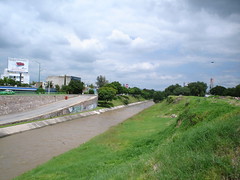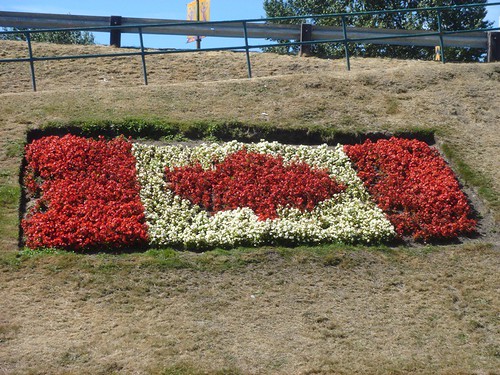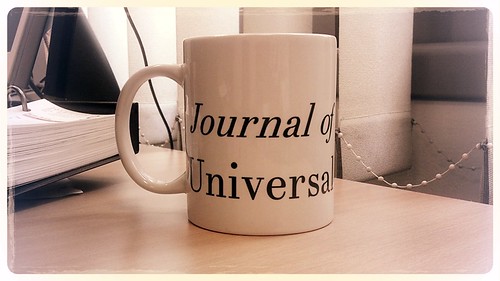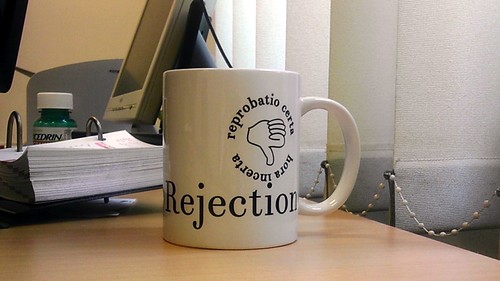 Academics work really hard, it’s a fact. Ever since I became an academic (e.g. ever since I started working in a research setting, which was two years before I even completed my undergraduate degree), my expectations of holidays were pretty much erased. I worked in a research lab where I was doing bench-scale wastewater treatment using activated-sludge-processes. I would wake up at 5:30am, drive to the lab, pick up the truck, travel to the city’s sewerage collection lagoons and sample raw municipal effluent.
Academics work really hard, it’s a fact. Ever since I became an academic (e.g. ever since I started working in a research setting, which was two years before I even completed my undergraduate degree), my expectations of holidays were pretty much erased. I worked in a research lab where I was doing bench-scale wastewater treatment using activated-sludge-processes. I would wake up at 5:30am, drive to the lab, pick up the truck, travel to the city’s sewerage collection lagoons and sample raw municipal effluent.
I would run traditional tests (COD, BOD5, dissolved oxygen, etc.) and then I would run the sample through a bench-scale treatment plant. This process took me about 4 hours, so during a normal day, I would run this process 3 times. I worked 16-18 hour days, and this seemed to me quite normal (I didn’t do this year-round, but only during critical times). When I completed my undergraduate honors thesis, I was completely wiped out from sustaining this kind of workload. I also took more courses than I was supposed (8 instead of 6) so I could finish my undergraduate degree earlier. And I did dance, theatre, volleyball and other extracurricular activities on top of my school and scientific work. My idea of holidays was getting time to catch up with homework.
 As I moved through the academic ladder (from undergraduate to PhD student to professor), I have always maintained a heavy workload. While I’ve worked hard at saying “no” to any commitments that don’t move forward my career, I do perceive that I need to work many hours a day (and 7 days a week, sometimes) to catch up. Work-life balance in academia is a thorny issue, and an ellusive one at that (just read this, this, this and this piece).
As I moved through the academic ladder (from undergraduate to PhD student to professor), I have always maintained a heavy workload. While I’ve worked hard at saying “no” to any commitments that don’t move forward my career, I do perceive that I need to work many hours a day (and 7 days a week, sometimes) to catch up. Work-life balance in academia is a thorny issue, and an ellusive one at that (just read this, this, this and this piece).
Of course, there’s always someone gloating that their academic life isn’t stressful. I love what I do, and for the most part, I manage my stress quite well (exercise, spending time with my parents and my friends, and extracurricular interests do the trick for me for the most part).
We wouldn’t be academics if it weren’t for the love of it, let’s face it. With the heavy workloads we have, having your heart in it is a requirement. I thought about what I do over the holidays (and what I plan to continue doing) in order to avoid academic burnout. These are a few tips (you can read others over at Jo Van Every’s site, and you may find also some striking similarities – great minds do think alike).
1. If you can’t disconnect for a few weeks, at least do it for a few hours every day
It is a fact that we need down time to recharge. We sometimes need to completely disconnect. This is much more difficult for me during the summer break, as I do have fieldwork to do, writing commitments, grant proposals to read and write, just to mention a few. Over the December holidays this is easier for me as I normally spend Christmas and New Year with my Mom, my brother, his wife, and my two adorable nephews (aged 5 and 2). Spending time with family is one of the ways in which I disconnect. Now, as anybody with toddlers/young kids will tell you, my telling them that Uncle Raul needs to work doesn’t really compute in their brain. They want to play with me, period. Even if I bring my laptop with me, both L and E come into my room and ask me to play with them. And, well, deadlines be damned, I leave my research behind and play with them. Of course, I have to come back in the late evening and early morning so as to catch up. But at least I get a few hours respite by playing with my nephews. You can perhaps schedule your writing as I do, very early in the morning so that you can write when the family doesn’t require you.
2. Schedule your time to work a reasonable number of hours.
During the holidays, I may not want to work 100 hours a week. And even though there’s still debate on whether academics can actually work 40 hour weeks, I still strive to balance my time. During the holidays I make sure that I maintain my writing quota (time-wise, 2 hours a day). But if this is unachievable because of my commitments, I strive to schedule my time in such a way that I only work what is reasonable during “reduced hours” times (e.g. holidays). Holidays are usually when I can catch up on my perennial lack of sleep, so I only work as many hours as required to get stuff out, and not more.
3. Let people know that you are going on holidays and ask them to respect your time.
This used to be really hard for me when I was a PhD student. How on Earth was I supposed to tell my own doctoral committee or my PhD advisor that I was going on holidays without being scolded? But then I realized that my PhD advisor and my doctoral committee ALL took holidays. Actual, real holidays. Weeks where they spent time with their loved ones and disconnecting form the world. When I realized my own doctoral committee were humans (bright, hard-working humans, at that), I gave myself permission to be one. So now I set up a fairly firm auto-responder: I’m away on holidays, and I will NOT answer emails from anybody while I am away. Of course, I never word it that way, but that’s the underlying message. And there’s always something really urgent. But if somebody really needs me, they know how to get a hold of me in case of an emergency.
4. If you really must work during your holidays, make it a working holiday.
In 2013, unfortunately, I can’t really take much time off as I just got two grant proposals accepted, and I need to get going on ethics review board, drafting interview protocols, I need to do field research, and I have six papers to write, a grant proposal to finish. So, my working holidays will involve spending time at my parents’ places (both of them are academics) and also working from home in Aguascalientes. But I also have invited a good friend of mine (also a professor) to come visit me for a few days. This ensures that we both do some work for a few hours a day, but at the same time, that we also take some time off to just do some touristy stuff.

Work-life balance is a challenge, but one that we academics must face and tackle. And I know that it will be a challenge for me too, as I face the next three weeks of holidays.
Happy summer!
 Note that I said “increase”, not “increasing” in the title of this post. I was HORRIBLE at doing this, although lately I’ve been improving. I have committed this mistake in the past, where I write some phenomenal conference papers, and then I let them sit there, languishing. Worst. Decision. Ever. I have two conference papers (one from 2005 and one from 2006) that would have been stellar (and well-cited) journal articles, had I put in the work, effort and hours to make them into journal manuscripts and send them off.
Note that I said “increase”, not “increasing” in the title of this post. I was HORRIBLE at doing this, although lately I’ve been improving. I have committed this mistake in the past, where I write some phenomenal conference papers, and then I let them sit there, languishing. Worst. Decision. Ever. I have two conference papers (one from 2005 and one from 2006) that would have been stellar (and well-cited) journal articles, had I put in the work, effort and hours to make them into journal manuscripts and send them off. 











Recent Comments